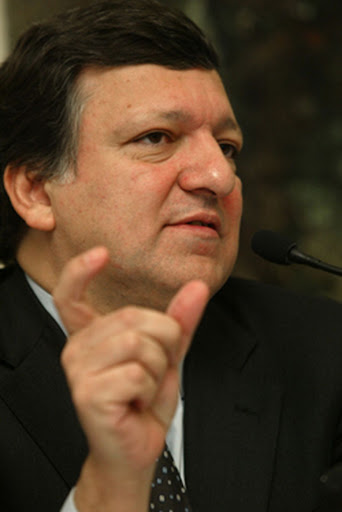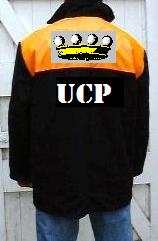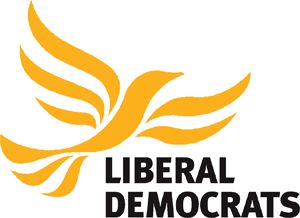
ConstitutionalAmending Treaty
Name change, a chance missed?
Conveniently enough towards the end of drafting the
first part of this miniseries the Prime Minister appeared before the commons liaison committee and outlined his so called 'red lines' in negotiating any replacement for the EU Constitutional Treaty. These days when it comes to Blair negotiating EU arrangements I don't have the slightest faith that these will be stuck to, but of course the purpose of this posting and the previous instalment was to try and remember the days when I was a moderately pro-EU individual to understand why I would, even with that mindset, have been very uncomfortable with the way things are going in terms with our relationship with Brussels. That being the case I guess I can suspend my disbelief a little further and widen the scope of my hypothetical naivety to encompass believing Blair will be able to secure each and every one of them.
The result of a successful agreement from the PM's perspective would still, when I look at my list of issues with the original Constitutional Treaty, been a deeply unsatisfactory document, that I would still, given the chance, vote against. At least he's had the sense to realise, as I'd hope anyone with the interests of the EU at heart would, that ending the criminal justice veto would be a recipe for disaster. Blair at least has heeded the warning from very recent history that the proposed Swastika ban contained, that we have the national state's national traditions in these matters remain far too varied to risk the folly of centralised diktat would represent, with the inevitable increased contempt towards the EU in many states.
As for the remainder of the issues, well, I guess I'd never have really imagined that they would have been addressed, so I'd have been disappointed with the outcome were such arrangements adopted, but probably still not yet in the anti-EU camp, still hoping for a more enlightened approach the next time around. I'd also very rightly fear the additional negative reaction from what would, and will, inevitably be a strengthened anti-EU movement.
Even the historical pro-EU me would have some sympathy with the antis. I may, in times past, have been prepared to stand up and defend much of the intent of what was being proposed even if I struggled to justify the detail and the mechanisms of the legal arrangements. I know for certain though, that I would have had complete sympathy, even from a pro-EU perspective with the means by which the political elites are attempting to bring the mechanisms into force. I can be so certain of this because I had the same misgivings over the same points with Maastricht, a treaty which though I was unhappy with some aspects of, I felt generally supportive of in its early days. In both cases, even when I was within the camp, the broader pro-EU movement has appeared at its very worst, and have wittingly or otherwise caused immense damage to the organisation they claim to champion.
There are a hundred and one flaws that could be pointed to dating right back to the farcical convention which drafted the original Constitutional Treaty, or rather the convention which was ignored by Giscard and the British civil servant whose name I forget as
they drafted the constitution; even the most passionate UK Europhile must have drawn breath when both the Conservative
and the Labour delegates to the convention effectively associated themselves with a minority opinion on the document.
These flaws continued all the way through the supercilious attitudes of the elites that played a part, I am sure at least in the case of the Netherlands, of electorates fed up of being taken for granted rejecting the demands of their elders and betters. Some of the arrogant reaction from the treaty's midwives I'm sure beggared the belief of today's moderate EU supporters, as much as it did me regardless of which mindset I choose to consider. Then there was the Margot Wallström inspired DDD, where Democracy, Dialogue and Debate were quickly replaced by Deceit, Demagoguery and Disdain. The same vested interests had been consulted on the original document were re-questioned with a view to finding a way round the objections of the electorate with no serious suggestion of actually addressing the objections themselves, meanwhile the provisions of the treaty began to be acted on without any legal basis. A few new faces, usually with existing deep attachment to the EU project to represent 'the people' in a facile attempt to understand the objections of those that disagreed with them. The real people had, by and large to settle for a web discussion forum that the Commission, who ran it, could safely ignore, overrun as it quickly became by the ranting of freaks at both extremes of view on the EU as well an anti-Semitic conspiracy and a number of militant Esperantists who were rightly loathed by both sides of the debate and the extremely tiny centre.
From a UK perspective much of this was pretty small beer though. I suspect the fears for the image of the EU when I supported its aims would simply have been a mirror of the increased distain for the organisation I actually did feel. The pro-EU me would probably still have arrived where we were a week or two ago still supporting the organisation. From the standpoint of the UK only one question really matters that of the referendum, or rather the two questions of the referendum. Should one have been offered in the first place, and should, the commitment having been made, should that it be honoured in light of the changed circumstances? Once again I don't think the pro-EU me of the nineties would have disagreed that strongly with the anti-EU me of this decade.
Let's take the latter question first. The sequence events is completely clear:
- Constitutional Treaty agreed
- Blair says there shall be Parliamentary approval only
- The outcry causes Blair to fear revolts both in Parliament, and at the forthcoming general election, and so agrees to a referendum
- France and the Netherlands reject the treaty, but Blair commits to the referendum in his manifesto to neutralise it as an electoral issue
- Blair is re-elected on this platform
- An attempt is made to resurrect the treaty in, so far as is possible, such away to bring into force the provisions of the original simply through different mechanisms
- Blair decides on criteria of his own choosing that the commitment to the referendum is not binding, and subject to a few negotiating points being agreed to, will not take place

Barroso: Back to Maoist Roots
"I care what you think less than this"
The time for debating the merits or otherwise of referenda vis-à-vis representative democracy, is in answer to the first question posed, but we are past that point and these arguments are utterly irrelevant. The decision to remove approval of the treaty from the scope of normal representative democracy and subject to it to direct approval by the people had
already been taken, a mandate had been sought from and given by the people with this decision part of the package. In years gone by I would still have felt that the behaviour of the Prime Minster was utterly unforgivable in this, and moreover the enthusiastic support for the approach from the likes of Barroso would have sickened me to the stomach to see the attitude of the Commission to the will of the people expressed so clearly. I feel less rage now from an anti-EU standpoint, it's up there with the religious orientation of the Pope and defecatory behaviour of bears; actually it's a real godsend. Behind every EUrealist commentary on the matter I can sense a delight at the self-inflicted damage the nation's EU supporters are about to inflict on themselves once again because I feel it so well myself now, and I know I would have felt those cuts myself a decade ago.
But should have Blair have ever given into the demands for a plebiscite in the first case? This is where the pro-EU me would have come into conflict with the mainstream of EU supporting opinion, however I wouldn't have been completely alone.
I do understand some people's issues with referenda in general. It is true that there is a tradition of representative democracy in this country, that sometimes referenda become a popularity poll on the government of the day or a vehicle to express an opinion on something other than that which is on the ballot paper through lack of education. When my instincts were more favourable to the EU I still though wanted a referendum to be held on both the Maastricht treaty, and I know I would have also wanted one to be held over the Constitutional Treaty or whatever successor document emerges over the next few months.
As to the general arguments against referenda in principle, it has been fairly clear that there is a substantial body of opinion in this country strongly at odds with the range of options on the EU offered by parties with a cat in hell's chance of getting seats at Westminster so we are already in a situation where representative democracy is creating tensions and fault lines. If held on schedule the argument about the referendum becoming an opportunity to kick the government would have been null and void, as it would have been sufficiently proximate to a general election that would have acted as a lightning rod for those instincts. As for informing the people, what could have been a better opportunity to debate with the people on the merits, as I then saw them, of the EU.
More than that though I felt that over Maastricht, and would hypothetically felt over the Constitutional Treaty or successor document, that a referendum was one of the few ways to turn round the seemingly unstoppable tide of hostility to the EU project. It would be a risky strategy of course, but there would be such potential to kill at a stroke the feeling that the EU is something 'done to' this country, rather than something we were a willing part of.
I've always wondered about the differences in attitude between the UK and Eire to the EU. Even now I'm not cynical enough to believe that the healthy case flows into the Republic are the sole, or even the major factors in the differences in outlook. There seems little prospect of the Irish turning EUrealist the moment the tide of public cash ebbs the other way according to most poll evidence, and even now I actually don't find the amount of money we pay into Brussels all that big a factor in my hostility today.
I suspect a bigger factor is the instinct of a relatively small country to immerse itself within a larger organisation where it can, and does, punch above its weight on the international stage play a bigger part, especially if this arrangement dilutes the influence of a larger neighbour, with which it has had a fractious relationship.
I think there is another easily overlooked factor though. Due to provisions of the Irish Constitution the consent of the people has been sought at every stage, and the people always had the confidence that it would be. Sure they knocked Nice back, but after some pretty minor revisions that caused nobody any real plan they endorsed the treaty at the second attempt with little difficulty. If anything this probably in the longer term will prove to have strengthened support for the organisation.

An opportunity for the EU's diehard fans
Could it have been the same in the UK? I actually think it could. What would have happened in years past? I genuinely believe that if, going into the Maastricht negotiations, we had known up front there were going to be substantial implications in terms of Sovereignty, but that the benefits were going to be explained, and we would have a chance to have our say, the hostility would never have reached the same heights. When the final deal was presented to the people I think we would have, erm, rejected it. I think though, with a few clarifications and a little broadening and more concrete wording of some of the opt-outs and so forth, just like Eire after Nice, we would have felt a degree of ownership of the project and I think a second vote could well have been a 'Yes'. It would have become 'our' project too, not just one of the political elite. The Constitutional Treaty would in all probability have been a comparatively easy sell tackled in the same way.
Yes there would have been, and now would be political risk over this approach. Regardless of which side of the fence I try to look at it from though it’s a damn site better than the casual acceptance of the fact that our enthusiasm for, and trust in, the EU bumbles along the bottom of EU league tables. This fact doesn't seem to register with some of the more extreme proponents of 'the project', they believe it's an acceptable price for having the type of EU they want and that the situation can last for ever; these people are imbeciles who seem to have learned not a single lesson from history. They prefer to spout forth 'inevitability' rather than make their case and ask for the people to back them; if they are not careful their dream will go the same way of many other 'inevitabilities'.
There is, I am glad to say, some awakening to this fact among some EU supporters. I could be cynical and say they are only prepared to advance the argument now that a referendum looks unlikely, but I won't…their arguments are not that dissimilar to the pro-EU me, so I'd be arguing against myself.
A blog I found via
Iain Dale,
Norfolk Blogger advances a somewhat similar argument from a LibDem perspective, while on
Dan Hannan's blog, Chris Sherwood, a well known EU attack dog, has a similar ethos his comments. I've seen Mr Sherwood comment in many forums and there is an unproven allegation that he authors some of the more intelligent pro-EU comments under a pseudonym on Margot Wallström's blog. He writes well, even if I disagree with him strongly these days, and nobody who reads him thoroughly should doubt the sincerity of his considered enthusiasm for the project. It is encouraging that some people like him do have thoughts on these lines.
My cynicism is not strong enough to see this as the possible emergence a positive line of thought amongst EU advocates as a bad thing. It's not universal, with usual suspects like LibDem MEPs still trying to dictate that the people must continue to be scorned, but it's a hopeful sign nonetheless.
To be honest, now for someone who has come to believe that, for some rather complex reasons that the EU is not good for this country, those with my outlook would be somewhat weakened by such a positive step by EU supporters. For all that though from the standpoint of openness, engagement, and the general health of politics in this country I would welcome the debate, even if there is a chance that I would be on the loosing side. EU supporters should realise that this chance diminishes with every new treaty; every power taken without consultation and every year nobody cares whether or not the people as a whole want this transformation.

The Berlin Wall
A monument to the impermenence of "inevitability"
It really should be they, not I who are demanding a referendum. Let them make their positive case for Europe, let the people choose. Until they do so the so-called supporters of the project will continue to be the greatest asset of the cause against the EU. At the moment too many seem blind to the damage they make to their own cause by their attitude to public opinion. The current situation cannot continue for ever; if they try I suspect the outcome can only be cataclysmic one day, from their perspective. Look to the fall of the Berlin Wall all EU acolytes, and not as some success that you have a very dubious claim to have a part in. I'm not making one of those facile comparisons between the EU and the former communist systems of Eastern Europe, because I don't believe in that crap. Look to it though in 1989, as an example of how a system can seem 'inevitable' one day despite public disapprobation and can be gone the next.
If it happens to the UK's relationship with the EU, don't blame UKIP, the print media, even The Sun 'wot won it'; it will be you 'wot lost it'.
Update 21/6: It appears I misunderstood the meaning of a reference to NorfolkBlogger's position on the EU, which I read elsewhere. Apologies to all.

























 Coalition Talks Collapse in Wales
Coalition Talks Collapse in Wales A Labour Saving Device
A Labour Saving Device
 RSS Feed - Main Blog
RSS Feed - Main Blog





